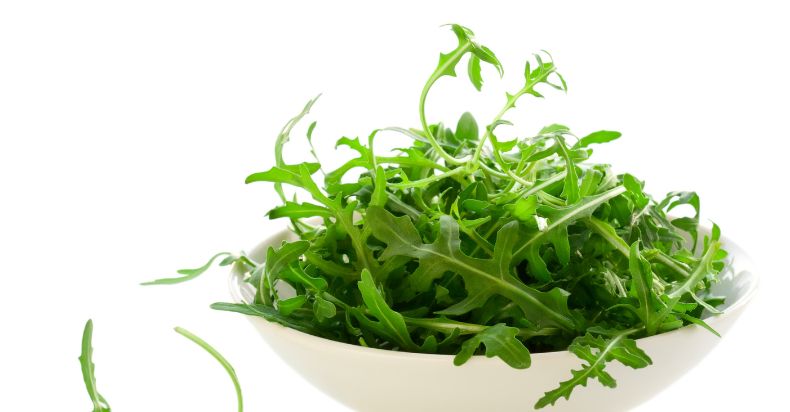Oxalates, or oxalic acid, are naturally occurring compounds found in a variety of plant foods.
They can bind to minerals in the gut and form crystals, which can lead to kidney stones in susceptible individuals. Therefore, people with a history of kidney stones or other health issues related to oxalates may be advised to follow a low-oxalate diet.
Is Arugula High In Oxalates?
No, Arugula is not high in oxalates compared to other greens. A cup of arugula contains approximately 15-20 mg of oxalates, which is significantly lower than the oxalate content in spinach and beets.
The Oxalate Diet
An oxalate diet involves limiting the intake of foods high in oxalates while increasing the consumption of low-oxalate foods.
This diet is often recommended for individuals with kidney stones, as it can help prevent the formation of calcium oxalate stones.
Arugula and Its Nutritional Benefits

Arugula, also known as rocket or roquette, is a leafy green vegetable that is part of the Brassica family.
It is known for its peppery flavor and is commonly used in salads and other dishes.
Arugula is low in calories but high in vitamins and minerals, including vitamin K, vitamin A, and folate.
A cup of arugula contains about 5 calories, 0.5 grams of protein, 0.1 grams of fat, and 0.8 grams of carbohydrates.
It is also a good source of antioxidants, which can help protect the body against oxidative stress and inflammation.
Oxalate Content in Arugula
Arugula is considered to be low in oxalates compared to other leafy greens.
A cup of arugula contains approximately 15-20 mg of oxalates, which is significantly lower than the oxalate content in spinach or beet greens, which can contain over 100 mg of oxalates per serving.
While spinach, beet greens, and swiss chard are high in oxalates, other leafy greens like arugula, kale, and lettuce are on the lower end of the oxalate spectrum.
This makes arugula a suitable option for those following a low-oxalate diet.
Tips for a Low-Oxalate Diet
- Be mindful of portion sizes: Even low-oxalate foods can add up if consumed in large quantities.
- Drink plenty of water: Staying hydrated can help prevent the formation of kidney stones.
- Balance your diet: Include a variety of low-oxalate foods to ensure you are getting all the necessary nutrients.
- Cook your vegetables: Cooking can help reduce the oxalate content of certain foods.
Conclusion
Arugula is a nutritious leafy green that is low in oxalates, making it a suitable option for those following a low-oxalate diet.
However, it is important to manage your overall oxalate intake and maintain a balanced diet to support your overall health.
If you have concerns about oxalates or kidney stones, it is always best to consult a healthcare professional for personalized advice.
